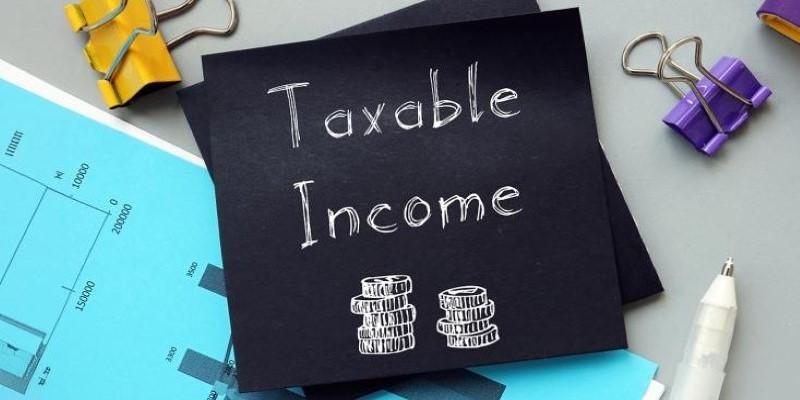There’s no universal answer to the question of when you should claim Social Security. Some start the moment they become eligible, while others wait for what they hope will be a bigger check down the line. This decision can have a lasting impact, especially if it becomes the backbone of your retirement income.
But choosing between now and later is more than a matter of how much you’ll receive each month. It’s about how long you might live, whether you're still working, your tax situation, your savings, and your family dynamics. Let’s look at the full picture to help make this decision feel a bit more grounded.
The age at which you claim your Social Security retirement benefit directly shapes the amount you receive. If you claim at age 62—the earliest possible age—you’ll get a reduced monthly amount. For someone with a full retirement age (FRA) of 67, claiming at 62 means receiving around 70% of the full benefit. Each month you wait after 62, the benefit grows slightly.

If you wait past your full retirement age, your benefit increases by about 8% each year until age 70. These are known as delayed retirement credits. After 70, there’s no increase for waiting longer.
So, the basic math is clear: wait, and you get more each month. Claim early, and you get more months of smaller checks. The debate lies in whether the larger benefit later is worth the wait.
This is where the concept of a "breakeven age" comes in. That's the age at which the total value of benefits received by delaying catches up to the value of starting earlier. For many people, the breakeven point lands in their early 80s. Living beyond that, and waiting likely paid off. Don’t, and you may have left money on the table.
Your health and family history play a major role in deciding when to claim. If you have reason to believe you won’t live into your 80s, claiming early could make more sense. Chronic health conditions, lifestyle, and your parents’ longevity can all be indicators.
But predicting your own life expectancy is tricky. Many people underestimate how long they’ll live. If you end up living into your 90s, locking in a lower monthly benefit could strain your finances later, especially if other sources of income run out.
On the flip side, some people prefer the peace of mind that comes from receiving benefits earlier, particularly if they’re not confident their savings can carry them for a long time.
For couples, it gets more nuanced. Social Security includes spousal and survivor benefits, and delaying one partner’s claim—usually the higher earner—can result in a larger survivor benefit later. If one spouse is in poor health but the other is expected to live much longer, it may make sense for the healthier, higher-earning spouse to wait.
Your current employment status and other income matter more than many realize. If you’re still working and you claim benefits before your full retirement age, part of your Social Security benefit may be withheld. In 2025, if you're under FRA and earn more than $22,320, your benefit is reduced by $1 for every $2 earned over the limit. That money isn’t lost forever—it gets credited back into your benefit calculation later—but it reduces immediate cash flow.

Once you reach FRA, you can work without any reduction to your benefit, regardless of income.
Taxes are another layer. Social Security benefits can be taxable depending on your overall income. If your combined income (which includes half your benefits, plus wages and other income) exceeds certain thresholds—$25,000 for individuals or $32,000 for married couples filing jointly—a portion of your benefits may be taxed.
If you have retirement savings or a pension, timing your withdrawals alongside your Social Security claim can help you manage your taxable income more effectively. In some cases, it might make sense to delay Social Security and draw down savings instead, which could reduce required minimum distributions later and lower your tax burden overall.
Sometimes, the decision isn’t about the math. It’s about how the timing fits into your life. Maybe retiring early and claiming at 62 lets you enjoy your freedom while you're in good health, even if the checks are smaller. Maybe working until 70 feels fine, and the bigger benefit is worth the wait. This is deeply personal.
Some people want the guaranteed income early, even if it means a reduced amount. Others see Social Security as a kind of longevity insurance—a safeguard if they live longer than expected.
There’s no penalty for changing your mind once. If you claim early and realize it was a mistake, you have a 12-month window to withdraw your application and repay the benefits, essentially giving yourself a reset. If you're past that window but haven’t reached full retirement age, you can suspend your benefit once you hit FRA to let it grow again, though you won’t get those suspended payments back.
People often overlook that Social Security isn’t a stand-alone decision. It’s one part of a retirement plan that includes savings, health care, lifestyle, and work. Your choice might not be perfect on paper, but if it gives you peace of mind and works with your other plans, it can still be the right call.
Deciding when to claim Social Security is more than just choosing an age—it’s about weighing your health, work situation, savings, family needs, and comfort level. Some will benefit from holding out for higher monthly checks, especially if they expect a long retirement. Others may feel better starting sooner, even with smaller payments. There's no one-size-fits-all answer. What matters is making the decision with a full understanding of how the timing affects your future. Whether you claim early or wait, the goal is to align the benefit with the life you want to live. A thoughtful, informed choice now can bring steadier ground later.
 TOP
TOP
Curious about when to claim your Social Security benefit? Learn how age, health, income, and other personal factors influence this important decision and shape your retirement future
 TOP
TOP
The joys of spontaneous travel with tips for unplanned adventures, packing light, and connecting with locals for unforgettable experiences.
 TOP
TOP
Discover thrilling day trips near Cape Town, featuring stunning landscapes, cultural experiences, and adventure for every traveler.
 TOP
TOP
Discover the truths and misconceptions about medical research studies in this insightful article.
 TOP
TOP
The benefits of outdoor activities for improving physical and mental well-being.
 TOP
TOP
Discover the truth about cold weather and its link to sickness in this science-based article.
 TOP
TOP
Identify emotional clutter and discover practical ways to declutter your mind for clarity and peace.
 TOP
TOP
Debunking 7 common myths about Alzheimer’s and dementia for clearer understanding.
 TOP
TOP
Untreated GERD can cause esophagus damage, Barrett’s esophagus, dental erosion, and cancer. Learn symptoms, risks, and why early treatment matters for health.
 TOP
TOP
Aphantasia affects mental imagery, memory, and creativity. Explore its causes, cognitive impacts, coping strategies, and real-life adaptations for navigating life without a mind's eye.
 TOP
TOP
Mental health shapes our well-being, productivity, and equality. Learn why it matters for everyone and discover ways to build stronger support systems.
 TOP
TOP
Learn to identify whether your eyelid bump is a stye or a chalazion, understand the causes and symptoms, and explore effective treatment options for better eye health and comfort.